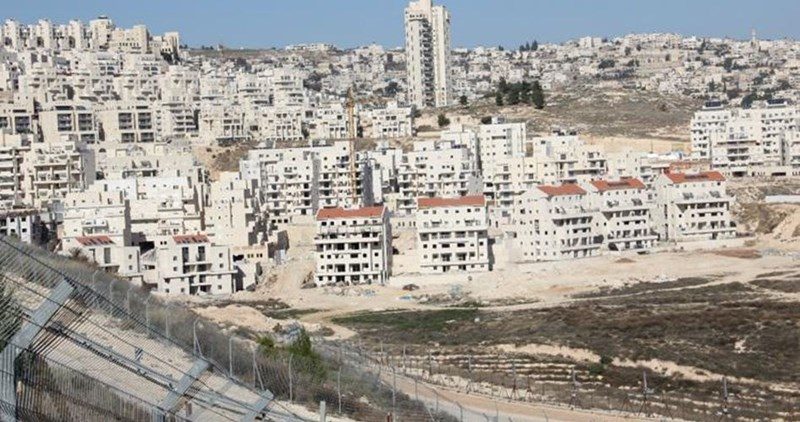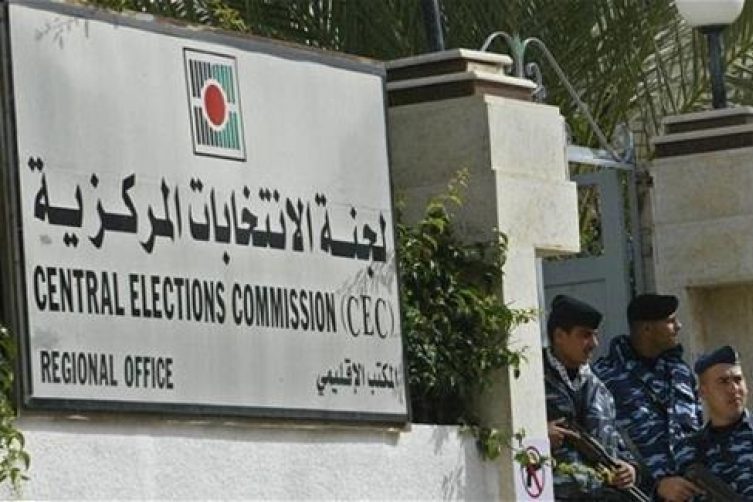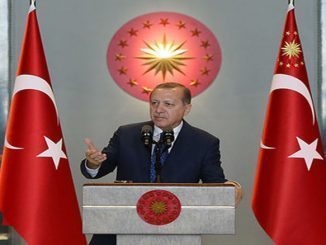
The European Union (EU) expressed deep concern over Israel’s plans to construct 98 new housing units in the northern West Bank.
The spokesperson for the European Union strongly condemned Israel’s plans to construct 98 new housing units in occupied Palestinian territory in the northern West Bank for the establishment of a new Israeli settlement. The condemnation came two days following notably harsh criticisms by the United States over Israel’s illegal settlement enterprise.
“The retroactive authorization of nearby illegal outposts or redrawing of local settlement boundaries contradicts previous public statements by the Government of Israel that it had no intention of creating new settlements,” the EU statement said.
Last month, the Higher Planning Committee (HPC) of Israel’s Civil Administration approved for “depositing” — the planning phase prior to final approval — a plan for 98 housing units for a new settlement to be located east of the already established settlement of Shiloh, on lands of the Palestinian village of Jalud in the northern West Bank district of Nablus. It is part of a larger plan for 300 units yet to be promoted.
Meanwhile in April, Palestinian residents of Jalud reported that Israeli authorities delivered notices alerting them that 5,000 dunams (1,250 acres) of private land were slated for confiscation.
A new industrial area west of Ramallah was also given approval at the time, near to Israel’s separation wall and the Green Line that divides the occupied West Bank from Israel.
The EU spokesperson emphasized that the new settlement units represented the “accelerating trend of new settlement announcements since the start of 2016,” adding that the move has threatened to further separate the West Bank districts of Ramallah and Nablus while disrupting any possibility of a contiguous Palestinian state.
“The decision to continue settlement building and expansion goes directly against the recommendations of the Quartet Report, weakens rather than strengthens the prospects for a two-state solution to the Middle East peace process, and makes the possibility of a viable Palestinian state more remote.”
The statement then went on to underscore the fact that all of Israeli settlements are illegal under international law, and that their continued expansion “calls into question Israel’s commitment towards reaching a negotiated agreement with the Palestinians.”
The EU statement came just two days after the White House and Department of State released scathing criticisms of the recent settlement plans, with the Deputy Department Spokesperson Mark Toner calling the move another step toward a “one-state reality of perpetual occupation.”
Toner emphasized in the statement that the new settlement, which would comprise more than 300 housing units and which is located “deep in the West Bank, far closer to Jordan than Israel,” would “link a string of outposts that effectively divide the West Bank and make the possibility of a viable Palestinian state more remote.”
“It is deeply troubling, in the wake of Israel and the U.S. concluding an unprecedented agreement on military assistance designed to further strengthen Israel’s security, that Israel would take a decision so contrary to its long term security interest in a peaceful resolution of its conflict with the Palestinians,” he added.
Last month, the Israeli and United States governments signed a $38 billion military aid package, promising Israel the hefty sum in the form of financial assistance and missile defense systems over the course of 10 year. The aid deal is the largest in US history to be given to a foreign government.
Meanwhile, White House Spokesperson Josh Earnest also slammed the announcement during a press conference on Wednesday, saying that the “actions of the Israeli government in announcing this settlement undermines the pursuit of peace.”
The US has condemned Israel’s settlement expansions in the past, but the government has yet to take any concrete actions to end settlement building in the Palestinian territory. Critics have claimed that instead the US has inadvertently encouraged Israel’s settlement enterprise through its consistent inaction over Israel’s violation of international law and its continued support of the Israeli government through an inflated military aid package.
In response to the wave of criticism, the Israeli Ministry of Foreign Affairs released a statement refuting claims that the housing units constituted a “new settlement.”
“This housing will be built on state land in the existing settlement of Shilo and will not change its municipal boundary or geographic footprint,” the statement read, adding that “the units are intended to provide a housing solution for the residents of Amona who must leave their homes in accordance with the demolition order issued by Israel’s High Court of Justice.”
However, rights groups have instead claimed that the new housing units are a direct resistance to the Israeli Supreme Court ruling in 2008 which ordered Amona’s demolition after Palestinians from neighboring villages — with the support of Israeli human rights organization Yesh Din — successfully petitioned the court to remove the outpost on grounds that the construction was carried out on privately held Palestinian land.
Israeli human rights watchdog Peace Now at the time of the settlement approval predicted that Israel would argue the plan is “only” for the expansion of Shiloh, despite the fact that the land is located one kilometer from Shiloh, and also one kilometer from the recently retroactively legalized outpost of Shvut Rachel.
According to Israeli domestic law, government-approved settlements are legal, but unauthorized settler outposts — which oftentimes are established to create corridors between existing settlements — are illegal under Israeli law, but they are often retroactively legalized following their establishment. However, according to international law, all Israeli settlements in occupied Palestinian territory are in direct violation of the Fourth Geneva Convention.
“The real obstacle to peace is not the settlements — a final status issue that can and must be resolved in negotiations between the parties — but the persistent Palestinian rejection of a Jewish state in any boundaries,” the Israeli Foreign Ministry statement concluded.
Peace Now warned last month of an inevitable “one-state reality,” after data released by the Israeli Central Bureau of Statistics (ICBS) showed that Israeli authorities increased settlement building by 40 percent in the first half of 2016.
According to REUTERS, Israel said on Wednesday that new houses it was building in the occupied West Bank did not constitute a new settlement, dismissing a strong U.S. condemnation of project.
“The 98 housing units approved in Shilo (settlement) do not constitute a ‘new settlement’. This housing will be built…in the existing settlement of Shilo and will not change its municipal boundary or geographical footprint,” a Foreign Ministry statement said.
Construction inside of Israel, however, experienced a 3 percent decrease from previous months, according to the data.
There are an estimated 500,000 to 600,000 Israeli settlers residing in 196 illegal Israeli settlements in the occupied West Bank and occupied East Jerusalem, and a further 232 settler outposts considered illegal both by international law and Israeli domestic law, according to the Applied Research Institute – Jerusalem (ARIJ).
Human rights groups and international leaders have continued to strongly condemn Israel’s settlement construction, claiming it is a strategic maneuver to prevent the establishment of a contiguous, independent Palestinian state by changing the facts on the ground, while members of Israel’s parliament, the Knesset, have publicly announced their support for plans aimed to annex the entirety of Area C — the more than 60 percent of the West Bank under full Israeli military and civil control.
While members of the international community have rested the solution to the Israeli-Palestinian conflict on the discontinuation of illegal Israeli settlements and the establishment of a two-state solution, Israeli leaders have instead shifted further to the right.
A number of Palestinian activists have criticized the two-state solution as unsustainable and unlikely to bring durable peace, proposing instead a binational state with equal rights for Israelis and Palestinians.



